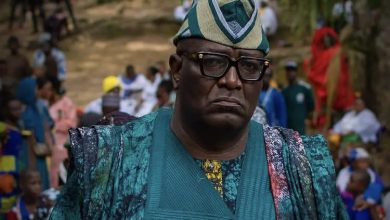Tinubu Withholds Assent to NDLEA Amendment Bill Over Constitutional Concerns
Tinubu rejects NDLEA bill, cites constitutional breach in seized assets proposal.
Debate intensifies as lawmakers clash over agency funding versus fiscal oversight concerns.
President Bola Ahmed Tinubu has formally declined to sign the National Drug Law Enforcement Agency (NDLEA) Amendment Bill, 2025, citing concerns over constitutional compliance. The decision was conveyed to the House of Representatives on Thursday, June 26, during a plenary session led by Speaker Tajudeen Abbas.
The controversial bill, recently passed by the National Assembly, proposed a major shift in the handling of proceeds from drug-related crimes. Under the proposed Section 46(4) of the amendment, the NDLEA would be allowed to retain a portion of assets seized during its anti-narcotics operations, a marked deviation from existing laws, which mandate that all recovered assets be remitted to the Confiscated and Forfeited Properties Account, managed by the federal government.
In declining assent, President Tinubu referenced Section 58(4) of the 1999 Constitution, which governs the legislative process and presidential assent. He maintained that the bill, in its current form, violates established legal provisions and encroaches on the fiscal oversight role of both the Executive and Legislature.
“The bill contradicts the constitutional framework, which requires that all proceeds of crime be centrally managed,” the President explained in the communication read on the House floor.
According to current law, disbursement of forfeited assets must go through a detailed process involving the President’s approval, the Federal Executive Council, and the National Assembly, ensuring transparency and checks and balances in the handling of public resources.
What the amendment sought to change
Supporters of the NDLEA Amendment Bill argue that granting the agency partial retention of seized assets would improve its operational funding, reduce delays caused by federal disbursement processes, and give the NDLEA more financial autonomy. This, they say, is critical in the face of rising drug-related threats and the need for swift enforcement action.
Currently, the NDLEA depends on annual budget allocations, which are often delayed or insufficient. Proponents believe that enabling the agency to retain a share of forfeited assets would significantly enhance its ability to respond to drug crimes, fund operations, and invest in equipment, intelligence, and logistics.
Concerns about oversight and abuse
Despite the potential benefits, critics of the amendment warn that allowing NDLEA to directly access proceeds from its operations could undermine transparency, legal accountability, and governance structures. They argue that bypassing the usual financial oversight channels could create room for corruption and misuse of state resources.
Analysts also caution that such autonomy might set a dangerous precedent for other law enforcement agencies, leading to the fragmentation of national asset recovery protocols.
The path forward
While the amendment may be aimed at improving NDLEA efficiency, the President’s refusal to sign highlights the delicate balance between empowering institutions and preserving constitutional integrity. The bill may either be revised by lawmakers to address the constitutional breaches or be completely shelved, depending on further consultations between the Executive and the Legislature.
As the debate continues, the rejection of the bill underscores President Tinubu’s commitment to upholding legal frameworks, even as the country seeks reforms to strengthen law enforcement and combat drug trafficking more effectively.



